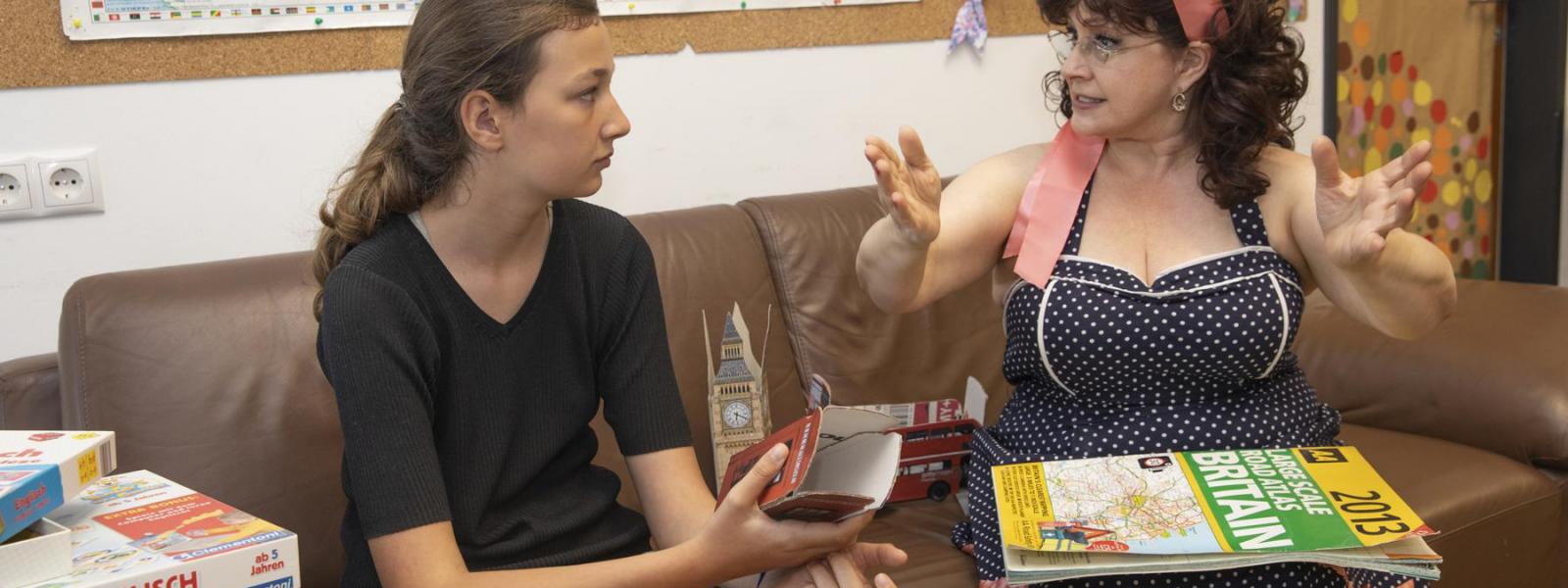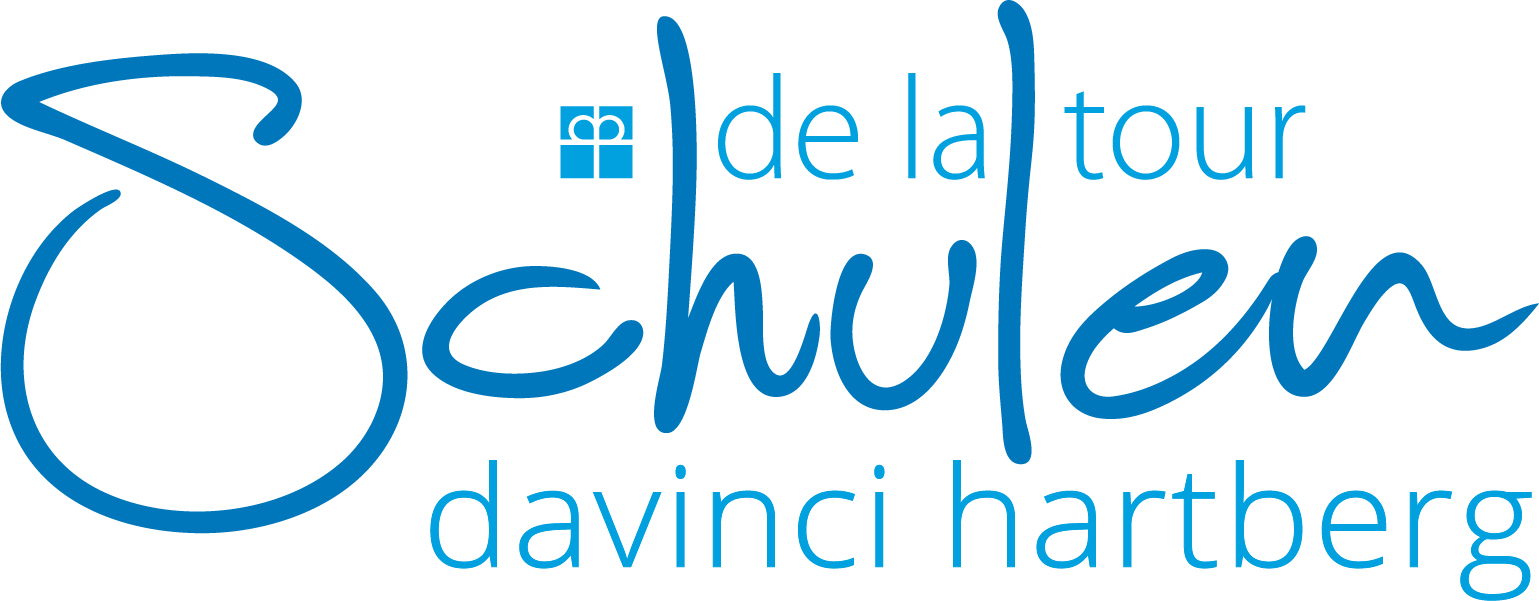
Dank Nativespeaker Nicola ist meine Aussprache in Englisch viel besser geworden.
Theresa (13 Jahre), Schülerin der de La Tour Schule davinci Hartberg
Nativespeaker Nicola stellt sich vor:
Hello! My name is Nicola Frances Peniston-Bird and I am happy to be working as a native speaker at the de La Tour Schule DAVINCI Hartberg.
The great thing about my job is that it gives me the opportunity to work with children of all ages, and accompany them from kindergarten, through primary school and finally secondary school! I love children, and it is fascinating to see them develop their personalities and skills during this time.
So what does my job entail?
I support the various teachers in class, and the children get to hear the main points repeated in English. I also go around the class and see where the students might need extra help, or simply to encourage them. I especially like creative classes, as I believe it is easiest to learn a language whilst carrying out an activity.
On the other hand I enjoy working with small groups of students. With the younger ones I love to read stories and play simple games, with the older ones it can be discussing a topic they are currently learning, or extra grammar practice.
The children also hear English spoken outside the classroom and often come for a chat.
I believe that learning should be fun and would like to share this English proverb with you:
You can take a horse to water, but you can't make it drink.
Meaning that you can send your children to school, but you can't make them learn.
However the proverb continues: But you can make it thirsty!
In German there is the great expression "Wissensdurst", and this is what should be instilled.
Children are inquisitive by nature and I like to incorporate this into teaching. Giving the children the tools to help them find things out for themselves offers a more individual approach, as some chldren need more support than others. I also like to use the "information gap" method, which is fantastic as it appeals to our curious nature.
What else is important? Being encouraging and not critical. I like to point out what the child has done well and give support where there is "room for improvement". The children should enjoy speaking with me without the fear of making mistakes.
Concrete example: Our topic was clothing. I brought in a bag of various items of clothing and took out a skirt.
"Do you know what this is?" Of course the children knew the word in German, but they didn't know it in English. This creates an "information gap", and the children want to know what the word is in English.
The next step is repetition. This sounds terribly boring, but a baby hears the same sounds again and again before it is able to identify individual words, and then understand their meanings. To stop it from becoming boring, one needs to use the same words in different contexts. This can be in the form of quizes, worksheets, games etc.
The final step is reproduction: Once you have understood the word and the meaning is clear, you need to be able to reproduce it yourself. Passive knowledge becomes active, which is a much larger step than most people realise.Hello! My name is Nicola Frances Peniston-Bird and I am happy to be working as a native speaker at the DaVinci school.
The great thing about my job is that it gives me the opportunity to work with children of all ages, and accompany them from kindergarten, through primary school and finally secondary school! I love children, and it is fascinating to see them develop their personalities and skills during this time.
So what does my job entail?
I support the various teachers in class, and the children get to hear the main points repeated in English. I also go around the class and see where the students might need extra help, or simply to encourage them. I especially like creative classes, as I believe it is easiest to learn a language whilst carrying out an activity.
On the other hand I enjoy working with small groups of students. With the younger ones I love to read stories and play simple games, with the older ones it can be discussing a topic they are currently learning, or extra grammar practice.
The children also hear English spoken outside the classroom and often come for a chat.
I believe that learning should be fun and would like to share this English proverb with you:
You can take a horse to water, but you can't make it drink.
Meaning that you can send your children to school, but you can't make them learn.
However the proverb continues: But you can make it thirsty!
In German there is the great expression "Wissensdurst", and this is what should be instilled.
Children are inquisitive by nature and I like to incorporate this into teaching. Giving the children the tools to help them find things out for themselves offers a more individual approach, as some chldren need more support than others. I also like to use the "information gap" method, which is fantastic as it appeals to our curious nature.
What else is important? Being encouraging and not critical. I like to point out what the child has done well and give support where there is "room for improvement". The children should enjoy speaking with me without the fear of making mistakes.
Concrete example: Our topic was clothing. I brought in a bag of various items of clothing and took out a skirt.
"Do you know what this is?" Of course the children knew the word in German, but they didn't know it in English. This creates an "information gap", and the children want to know what the word is in English.
The next step is repetition. This sounds terribly boring, but a baby hears the same sounds again and again before it is able to identify individual words, and then understand their meanings. To stop it from becoming boring, one needs to use the same words in different contexts. This can be in the form of quizzes, worksheets, games, etc.
The final step is reproduction: Once you have understood the word and the meaning is clear, you need to be able to reproduce it yourself. Passive knowledge becomes active, which is a much larger step than most people realise.

